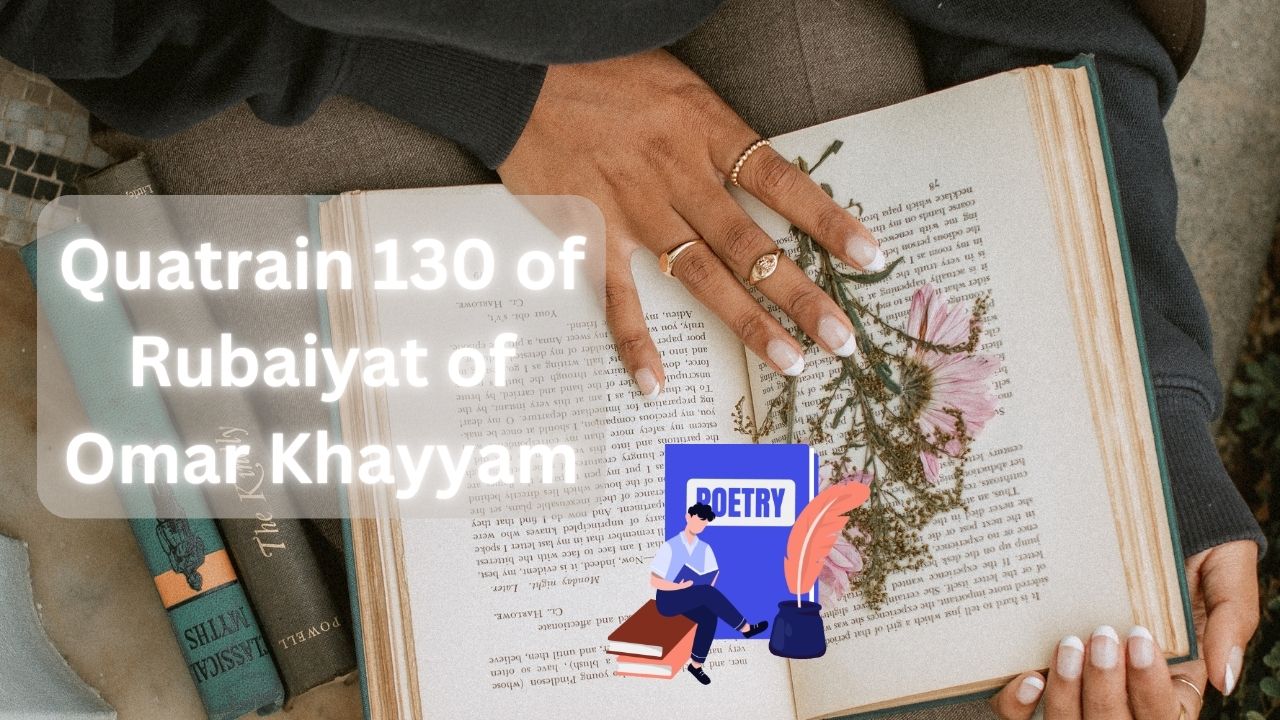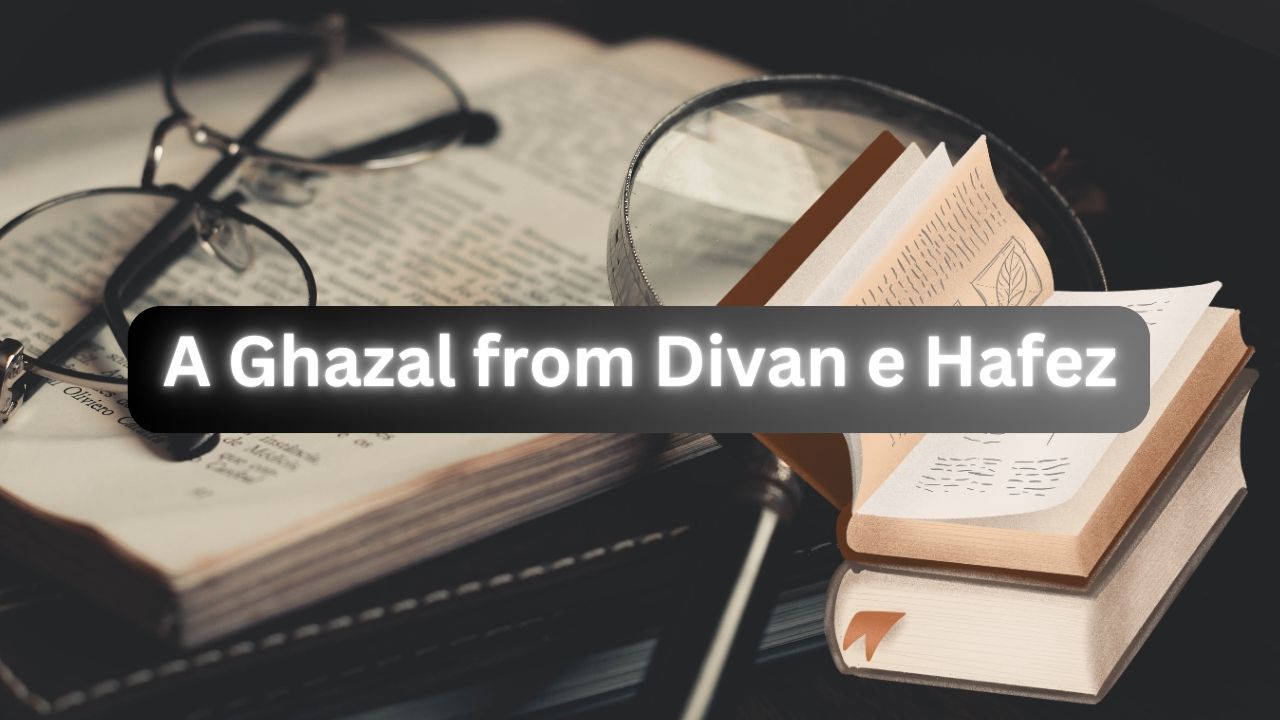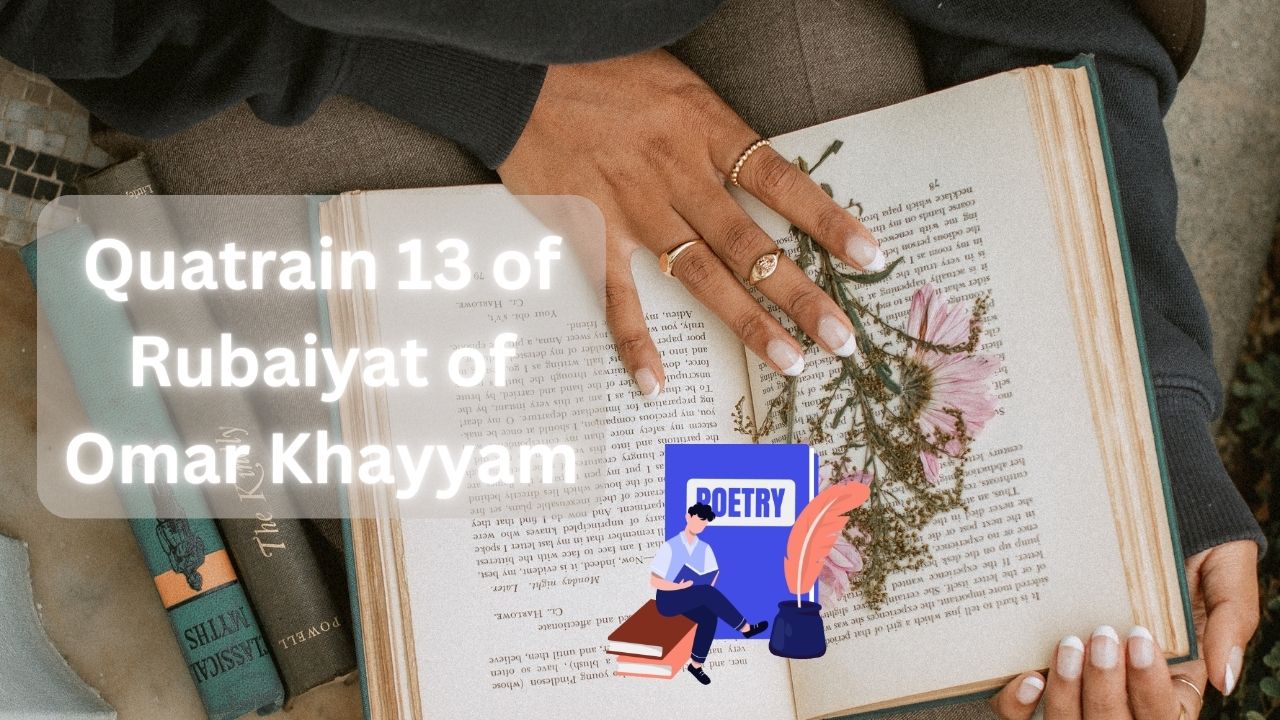Hey poetry lovers! In today's post, we're diving deep into a powerful quatrain by the legendary Omar Khayyam. This one explores the idea of human responsibility through the lens of self-reflection. We'll be checking out the original Persian verses alongside its English translation to unlock the wisdom within!
First the Original Persian Verses:
مائیم که اصل شادی و کان غمیم
سرمایهی دادیم و نهاد ستمیم
پستیم و بلندیم و کمالیم و کمیم
آئینه زنگ خورده و جام جمیم
The Translation to English is:
We are the source of joy and the mine of sorrow,
We are the capital of justice and the foundation of oppression.
We play a role in our own high and low positions, our perfection and shortcomings,
We are the tarnished mirror and the world-reflecting cup.
Analysis:
Quatrain 130 from Khayyam's Rubaiyat is a profound meditation on the nature of human existence and the power of self-awareness. The poem explores the dualistic nature of human experience, highlighting the coexistence of joy and sorrow, justice and oppression, perfection and shortcomings within each individual and responsibility of all of these is on that individual.
The first line talks about The Source of Joy and Sorrow:
The opening line, "We are the source of joy and the mine of sorrow," establishes the central theme of the quatrain – the inherent capacity within each individual to experience both positive and negative emotions. Khayyam suggests that our own thoughts, actions, and choices determine our emotional state. We have the power to cultivate joy through positive thoughts, acts of kindness, and a focus on the good in our lives. Conversely, we can also create sorrow through negative thoughts, harmful actions, and a focus on the negative aspects of our experiences.
The second verse is about The Capital of Justice and the Foundation of Oppression:
The second line, "We are the capital of justice and the foundation of oppression," further explores the dualistic nature of human behavior. Khayyam asserts that we possess the ability to choose between justice and injustice, and that our choices have a significant impact on the world around us. We can promote justice through acts of fairness, compassion, and empathy. Conversely, we can also perpetuate oppression through acts of cruelty, discrimination, and injustice.
The third line is about our Role in Our Own High and Low Positions:
The third line, "We play a role in our own high and low positions, our perfection and shortcomings," emphasizes the role of personal act in shaping our lives. Khayyam suggests that we are not merely passive recipients of our circumstances, but rather that we have the power to influence our own destinies. We can strive for higher positions through hard work, dedication, and ethical conduct. Similarly, we can cultivate personal growth and development by seeking knowledge, pursuing excellence, and embracing our flaws.
The final line says that we cane be either The Tarnished Mirror or the World-Reflecting Cup:
The closing line, "We are the tarnished mirror and the world-reflecting cup," serves as a powerful metaphor for self-awareness. Khayyam likens our inner selves to a mirror, reflecting our thoughts, emotions, and experiences. Just as a tarnished mirror can distort our image, our own negative thoughts and actions can cloud our perception of ourselves and the world around us. Conversely, a clean mirror can accurately reflect our true selves, enabling us to see ourselves with clarity and compassion. Similarly, we can become world-reflecting cups, embodying the positive qualities we wish to see in the world – kindness, justice, and compassion.
In essence, Quatrain 130 from Khayyam's Rubaiyat is a call to self-awareness and personal responsibility. It reminds us that we have the power to shape our own lives, our experiences, and the world around us. By cultivating positive thoughts, actions, and choices, we can become the source of joy, the capital of justice, and the world-reflecting cup that embodies the best of humanity.
So there you have it! Khayyam's quatrain reminds us that the power to create a fulfilling life lies within each of us. By choosing joy, justice, and self-improvement, we can all become the best versions of ourselves and contribute to a brighter world.





